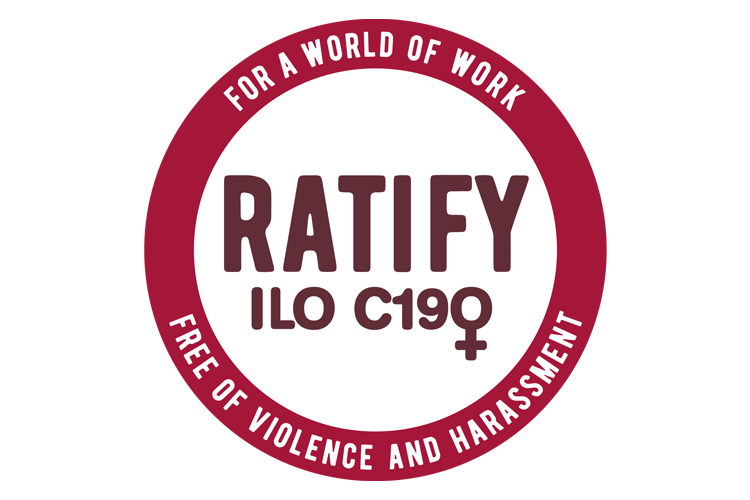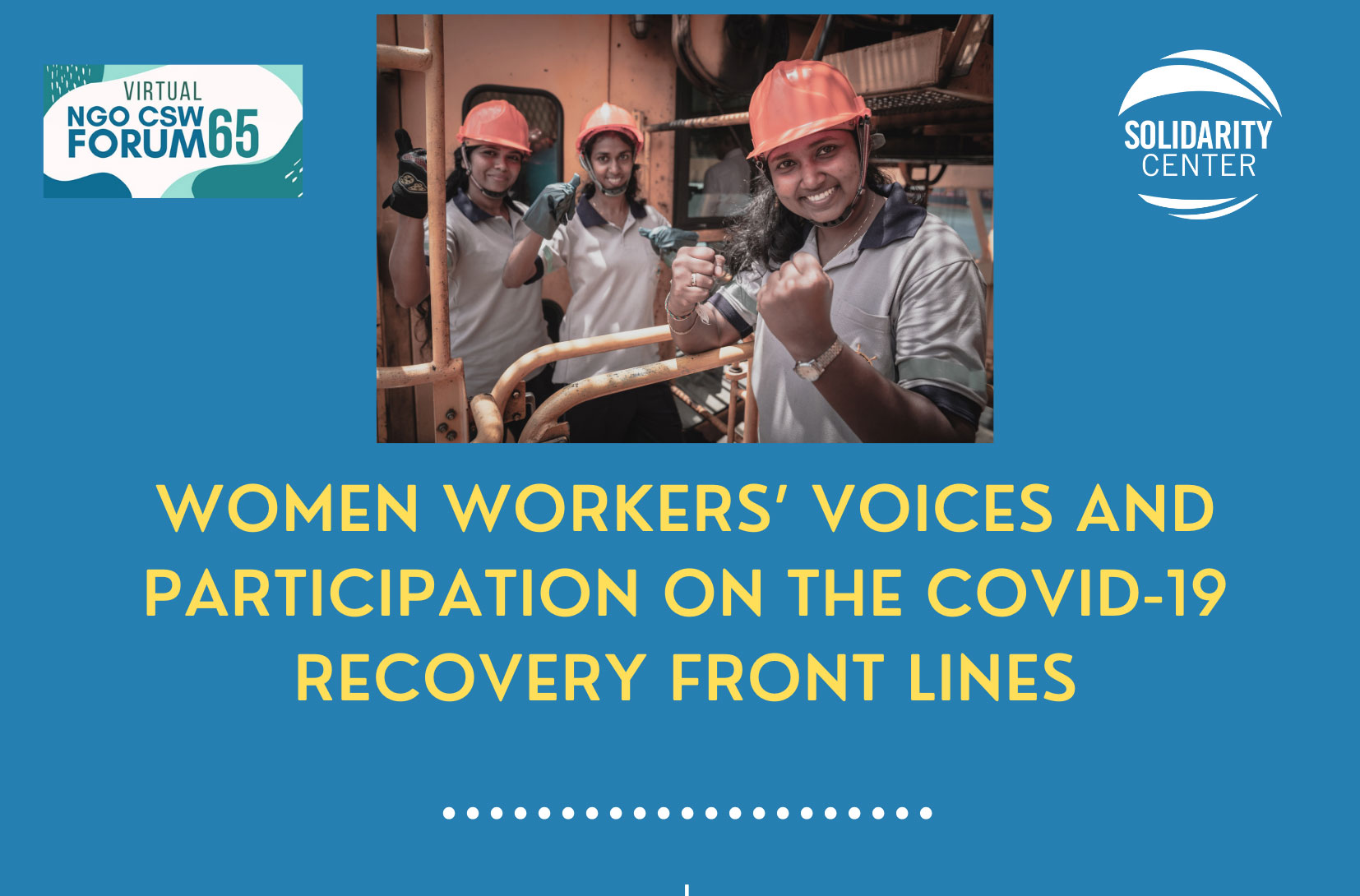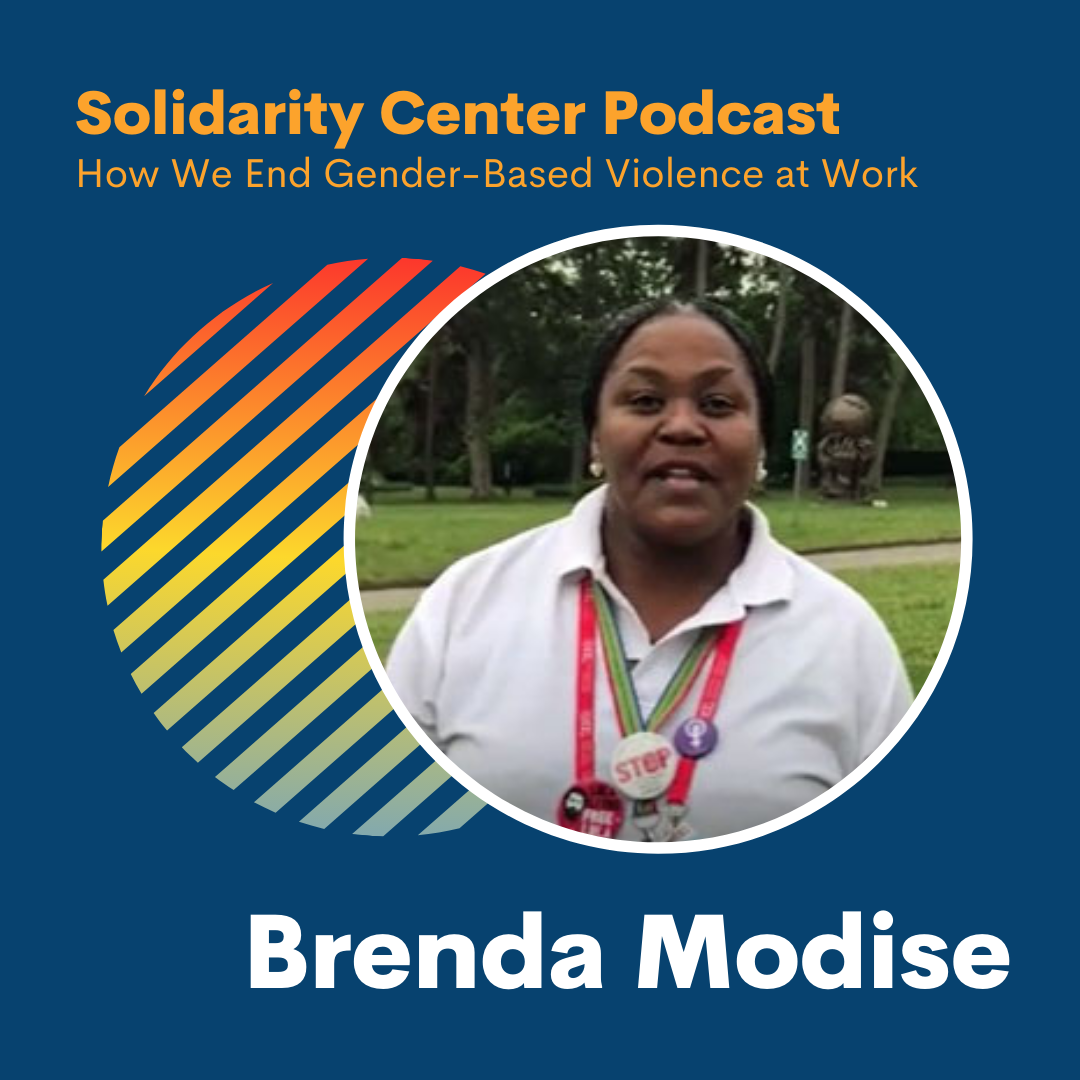Union women and Solidarity Center partners from the Middle East and North Africa spearheaded a petition calling for governments to ratify International Labor Organization Convention 190, the landmark global labor standard adopted in June 2019 to eliminate violence and...
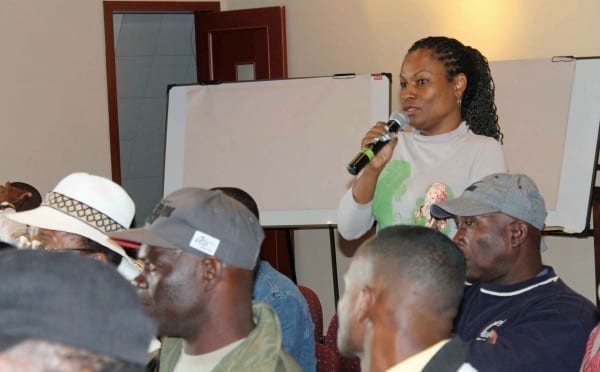
The Solidarity Center supported the development of the Afro-Colombian Labor Council, the first national organization in Colombia dedicated to improving the working conditions of Afro-descendants. Credit: Solidarity Center/Rhett Doumitt
The Solidarity Center engages with unions and their allies through an analysis and practice of equality, radical inclusion and intersectionality that is explicitly feminist, anti-racist, pro-equality, pro-worker, pro-migrant and class conscious.
The Solidarity Center designs and implements strategies to confront the multiple and intersecting forms of oppression that contribute to economic structures in which women and other groups of workers are devalued and excluded from economic and social equality. This requires a conscious effort to examine how oppressive forces play out throughout the global labor movement with a commitment to dismantle these systems. Explicit in this work is the understanding that the agency and leadership of the most marginalized workers are key components of decent work and economic justice for all.
The Solidarity Center has assisted unions and their allies in countries such as Cambodia, Colombia, Georgia, Honduras, Indonesia, Kyrgyzstan, Morocco, Nigeria, Nicaragua, South Africa and Tunisia to ensure meaningful participation of historically excluded and marginalized workers in unions and other democratic structures.
See related factsheets, videos and reports.
In Morocco, the Solidarity Center supported a multi-year effort to build women worker power and gender equality which led to the inclusion of women workers during negotiations for the first collective bargaining agreement in the informal agriculture sector. In Colombia, the Solidarity Center supported the development of the first national organization dedicated to improving the working conditions of Afro-Colombians.
In Kyrgyzstan, Morocco and Tunisia, Solidarity Center is assisting in strengthening union efforts to promote inclusion of individuals with disabilities. In Nicaragua, Solidarity Center supports domestic workers as they address inclusion of LGBTQI union members to ensure they can represent themselves, articulate their priorities and increase their leadership opportunities and visibility.
The Solidarity Center:
- Conducts research and awareness-raising to challenge systems of oppression and inform inclusive approaches to building worker power across social identities at all levels
- Supports representative, inclusive leadership in our partner organizations
- Engages in cross-movement work to combat tools of oppression that impact women, including gender-based violence and harassment at work
- Brings together unions and community groups to identify shared socioeconomic struggles, analyzes how those struggles are linked to systemic racism and implements organizing, legal and advocacy strategies to collectively overcome the oppression that entraps workers in poverty
- Advocates for economic policies that uproot systemic discrimination and exploitation in labor markets.
Union Women on the COVID-19 Front Lines: The Road to Recovery
The COVID-19 pandemic has hit workers hard—but women have especially suffered compared with men, experiencing higher rates of unemployment, discrimination and exposure to the virus, and skyrocketing rates of gender-based violence and harassment (GBVH), speakers said...
Billions of Us, One Just Future: Solidarity Center Podcast Launches Today
“Violence and harassment happens to all workers, irrespective of your gender,” says Brenda Modise, a union activist in South Africa. “It doesn't matter whether they are men and women, old young LGBTQI community or anyone, but we are addressing violence and harassment...
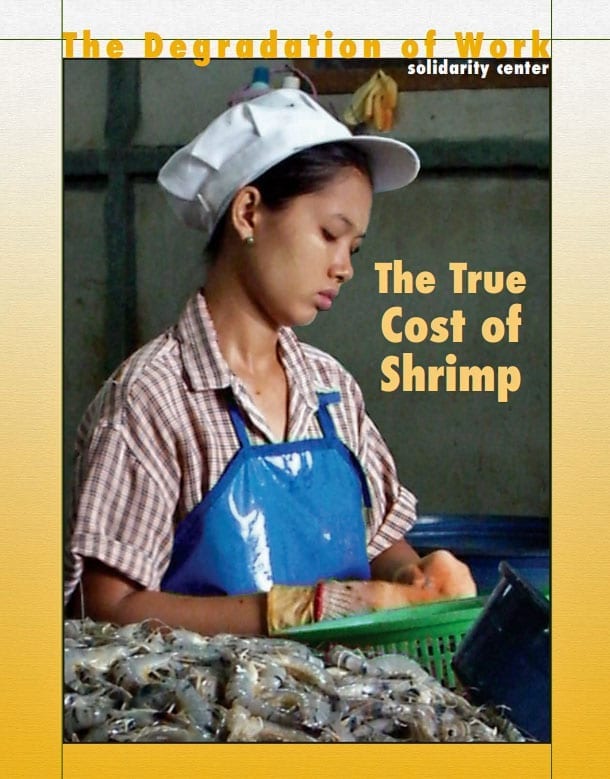
The True Cost of Shrimp (2008)
In little more than 30 years, the shrimp industry has been revolutionized through an unprecedented increase in efficient production, resulting in tremendous profitability for producers. But the “shrimp boom” is sustained through a staggering, largely hidden, cost to...

The Struggle for Worker Rights in Guatemala (2008)
Guatemala’s laws include unreasonable restrictions and requirements on union membership and the right to strike. Women workers are usually paid less than their male counterparts for work of equal value. Indigenous workers and rural workers, with few legal rights, are...
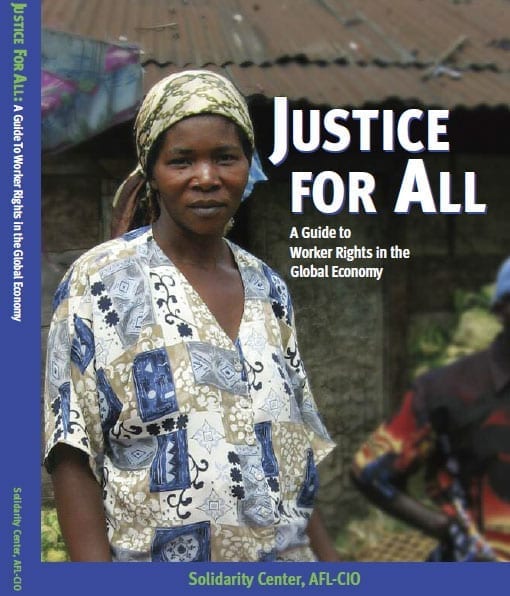
Justice for All (2008)
"Justice for All" examines the effects of global economic integration in the late 20th century on worker rights, including the growth of the informal economy and migration and human labor trafficking, and looks at how government, corporations and unions can help...
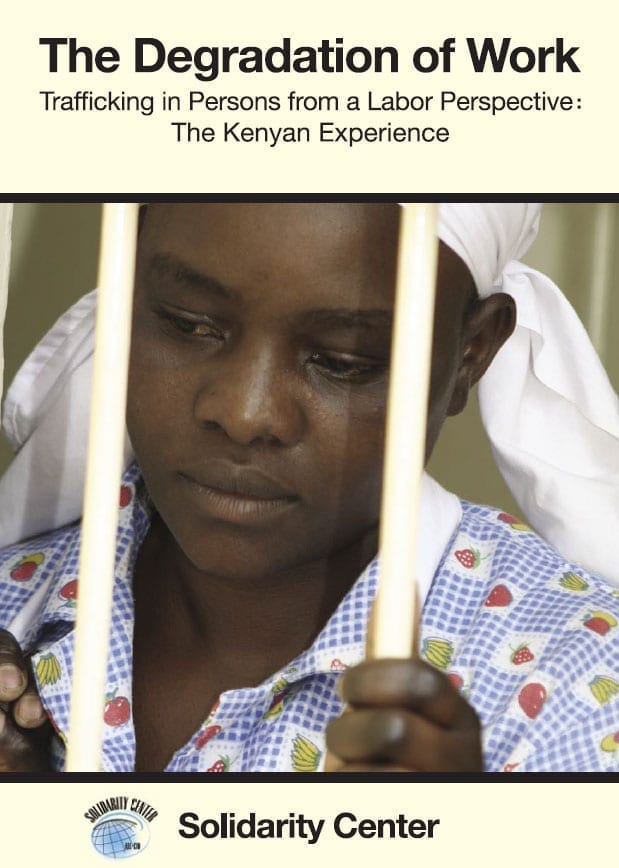
Trafficking in Persons from a Labor Perspective: The Kenyan Experience (2007)
Trafficking in Persons from a Labor Perspective: The Kenyan Experience provides readers with a general overview of human trafficking in persons from a labor perspective, with a focus on universal and global themes as illustrated by the experiences in Kenya. The...
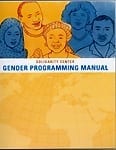
Solidarity Center Gender Programming Manual (2006)
This 70-page handbook incorporates staff insights and experiences into checklists and tools needed to develop programs that redress gender inequity in the workplace, promote leadership roles for women, and move closer to achieving full worker rights. Download here....
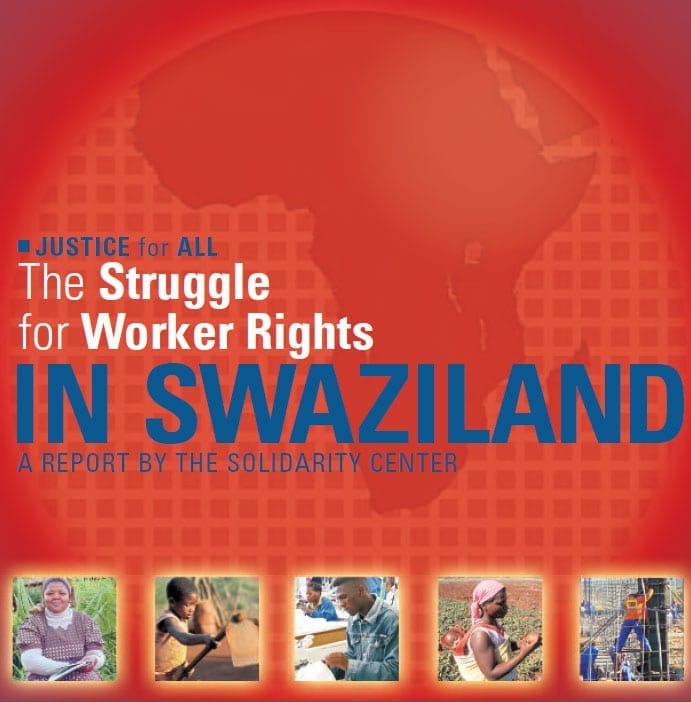
The Struggle for Worker Rights in Swaziland (2006)
Swazi workers face many challenges, especially women workers, who have a low status in Swazi society and make up a large percentage of the workforce, yet endure discrimination and workplace sexual harassment and violence. Improvements at the workplace cannot be...

